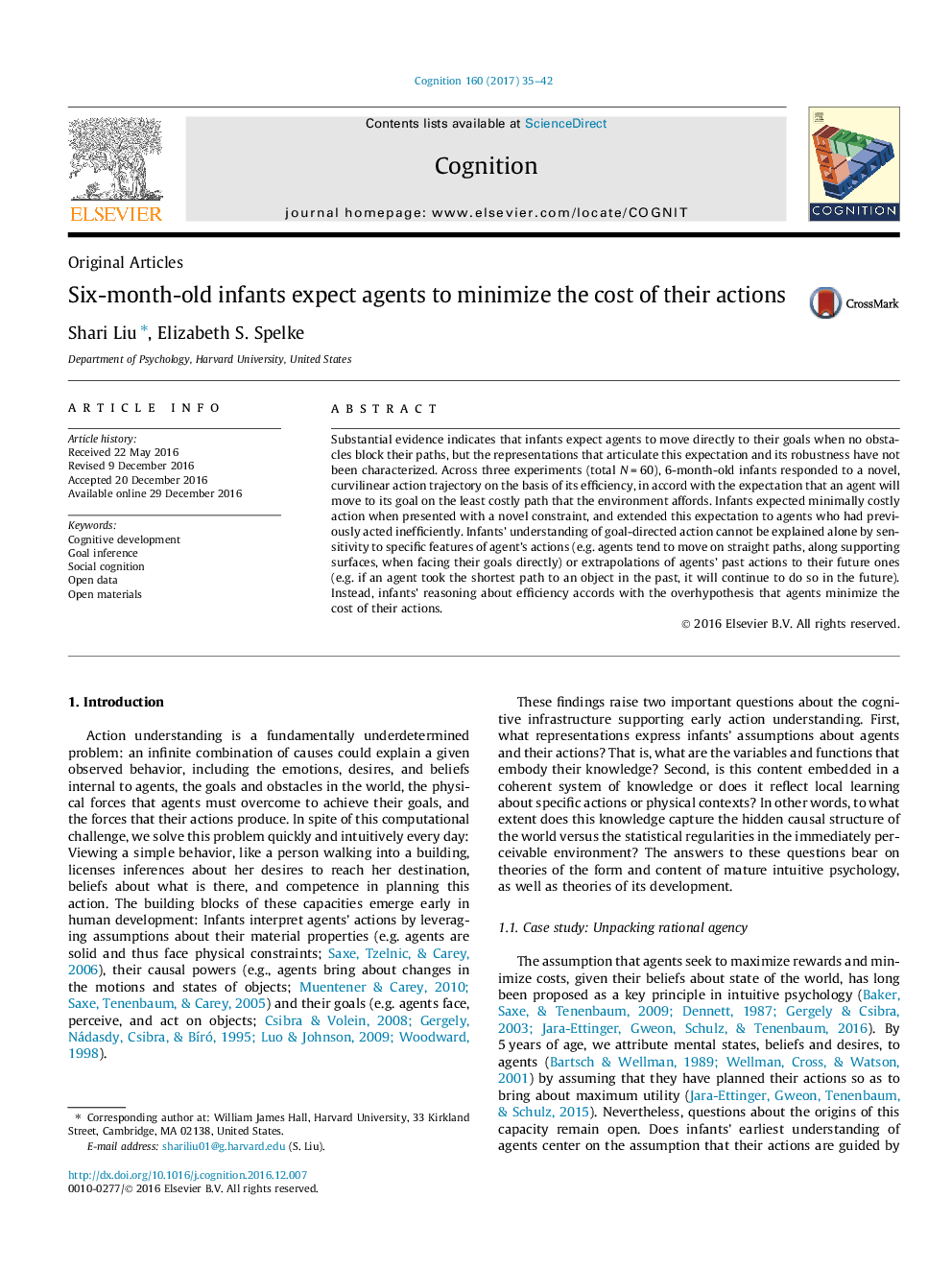| کد مقاله | کد نشریه | سال انتشار | مقاله انگلیسی | نسخه تمام متن |
|---|---|---|---|---|
| 5041621 | 1474107 | 2017 | 8 صفحه PDF | دانلود رایگان |
• Six-month-old infants expect agents to minimize the cost of their actions.
• Infants apply this expectation even to previously inefficient agents.
• This expectation reflects an inductive bias on observing efficient action.
Substantial evidence indicates that infants expect agents to move directly to their goals when no obstacles block their paths, but the representations that articulate this expectation and its robustness have not been characterized. Across three experiments (total N = 60), 6-month-old infants responded to a novel, curvilinear action trajectory on the basis of its efficiency, in accord with the expectation that an agent will move to its goal on the least costly path that the environment affords. Infants expected minimally costly action when presented with a novel constraint, and extended this expectation to agents who had previously acted inefficiently. Infants’ understanding of goal-directed action cannot be explained alone by sensitivity to specific features of agent’s actions (e.g. agents tend to move on straight paths, along supporting surfaces, when facing their goals directly) or extrapolations of agents’ past actions to their future ones (e.g. if an agent took the shortest path to an object in the past, it will continue to do so in the future). Instead, infants’ reasoning about efficiency accords with the overhypothesis that agents minimize the cost of their actions.
Journal: Cognition - Volume 160, March 2017, Pages 35–42
